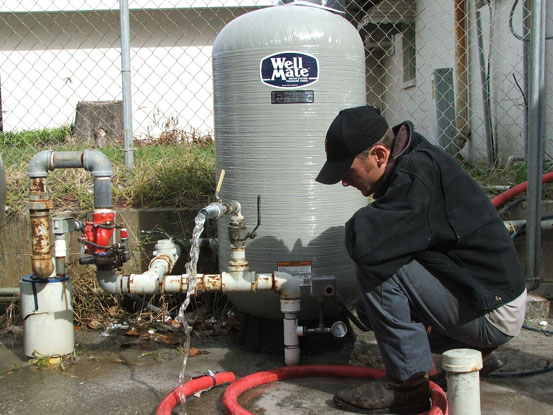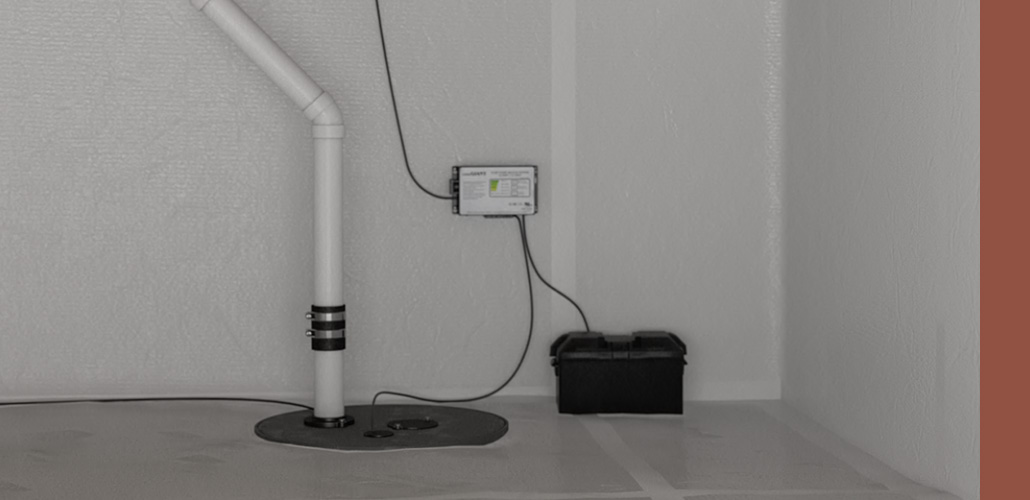Comprehensive Water Treatment Solutions: Safeguarding Your Household's Health and Health
Comprehensive Water Treatment Solutions: Safeguarding Your Household's Health and Health
Blog Article
Comprehending the Key Parts of Effective Water Filtering Systems

Significance of Water Filtering Systems
Water filtration systems play an important role in making certain accessibility to clean and risk-free alcohol consumption water by effectively removing contaminants and impurities. These systems are crucial in addressing the expanding problems over water quality and the prospective health and wellness dangers related to taking in polluted water. By utilizing different purification systems such as reverse osmosis, triggered carbon, and UV sterilization, water filtration systems can efficiently eliminate harmful compounds like microorganisms, viruses, hefty steels, and chemicals from the water system.
In addition, water filtration systems aid to improve the taste and smell of water by getting rid of chlorine, sediments, and various other toxins that can impact its high quality. Well Pump Replacement. This improvement in water high quality not just makes it much more tasty yet additionally encourages individuals to drink an appropriate quantity of water daily, advertising far better hydration and overall wellness
Sorts Of Purification Components

Physical filters are developed to physically strain out pollutants from the water. These filters can be made of products like ceramic, carbon, or also sand, and they function by capturing particles larger than the filter's pores as water passes through.
Chemical filters utilize various chemical procedures to remove pollutants from the water. Examples consist of turned on carbon filters, which adsorb contaminations, and turn around osmosis membrane layers, which use stress to different pollutants from the water.
Biological filters make use of living microorganisms like bacteria or algae to damage down raw material and contaminants in the water. These filters are commonly made use of in wastewater treatment plants or natural water filtration systems.
Comprehending the different types of purification parts is essential for picking one of the most ideal water filtering system for particular purification requirements.
Feature of Debris Filters
Debris filters play an important function in water filtration systems by properly capturing strong particles suspended in the water. These filters are usually the very first line of defense in a purification system, eliminating bigger particles such as sand, silt, dirt, and corrosion before the water relocates with finer filtering stages. By trapping these sediments, the filters prevent them from getting to downstream components, hence extending the life expectancy and efficiency of the entire system.
Disregarding this upkeep can lead to obstructing, minimized water circulation, and jeopardized filtration effectiveness. Overall, debris filters are indispensable components that add considerably to the efficiency of water filtering systems.
Duty of Triggered Carbon Filters
Playing a crucial function in water filtration systems, turned on carbon filters contribute in getting rid of impurities and contaminants from the water system. These filters are created to adsorb and catch a broad range of pollutants, including chlorine, volatile web natural substances (VOCs), chemicals, and herbicides. The activated carbon material has a huge area, permitting the reliable trapping of contaminants with a procedure called adsorption. As water travels through the filter, the triggered carbon draws in and holds onto the pollutants, making sure that the water that comes out beyond is cleaner and safer for intake.
Activated carbon filters are highly effective at boosting the preference and smell of water by reducing chemicals that can impact its high quality. Due to their versatility and reliability, activated carbon filters are a vital component in ensuring that water is purified to the greatest requirements before getting to customers.
Recognizing Reverse Osmosis Solutions
Reverse osmosis systems are sophisticated water filtration systems that utilize a sophisticated procedure to eliminate impurities and pollutants from drinking water. These systems function by using stress to the water, requiring it via a semi-permeable membrane. This membrane layer functions as a barrier, allowing just distilled water molecules to go through, while obstructing bigger particles such as minerals, chemicals, and other pollutants. Consequently, the water that appears on the other side is considerably cleaner and more secure for consumption.
One trick advantage of reverse osmosis systems is their capacity to get rid of a vast array of pollutants, including heavy steels, dissolved bacteria, solids, and infections. This makes them very reliable in boosting the general top quality and safety and security of drinking water. Furthermore, reverse osmosis systems are relatively low-maintenance and can be mounted under the sink or in a main purification system, giving practical accessibility to tidy water throughout the household. Generally, comprehending just how reverse osmosis systems work can aid people make notified choices about their water purification requirements.
Conclusion
In verdict, reliable water filtration systems are important for ensuring safe and tidy alcohol consumption water. By comprehending the feature and role of each element, individuals can make educated decisions when selecting a water filtration system.
Water purification systems play an essential function in guaranteeing access to tidy and safe alcohol consumption water by efficiently eliminating impurities and impurities. By making use of numerous purification mechanisms such as reverse osmosis, activated carbon, see post and UV sterilization, his response water filtration systems can efficiently get rid of unsafe materials like germs, viruses, hefty metals, and chemicals from the water supply.
Sediment filters play a critical role in water filtration systems by properly recording solid fragments put on hold in the water (Water Filtration Systems).Playing an essential duty in water filtration systems, turned on carbon filters are critical in removing impurities and impurities from the water supply.Reverse osmosis systems are innovative water filtration systems that use a sophisticated procedure to eliminate pollutants and contaminations from drinking water
Report this page